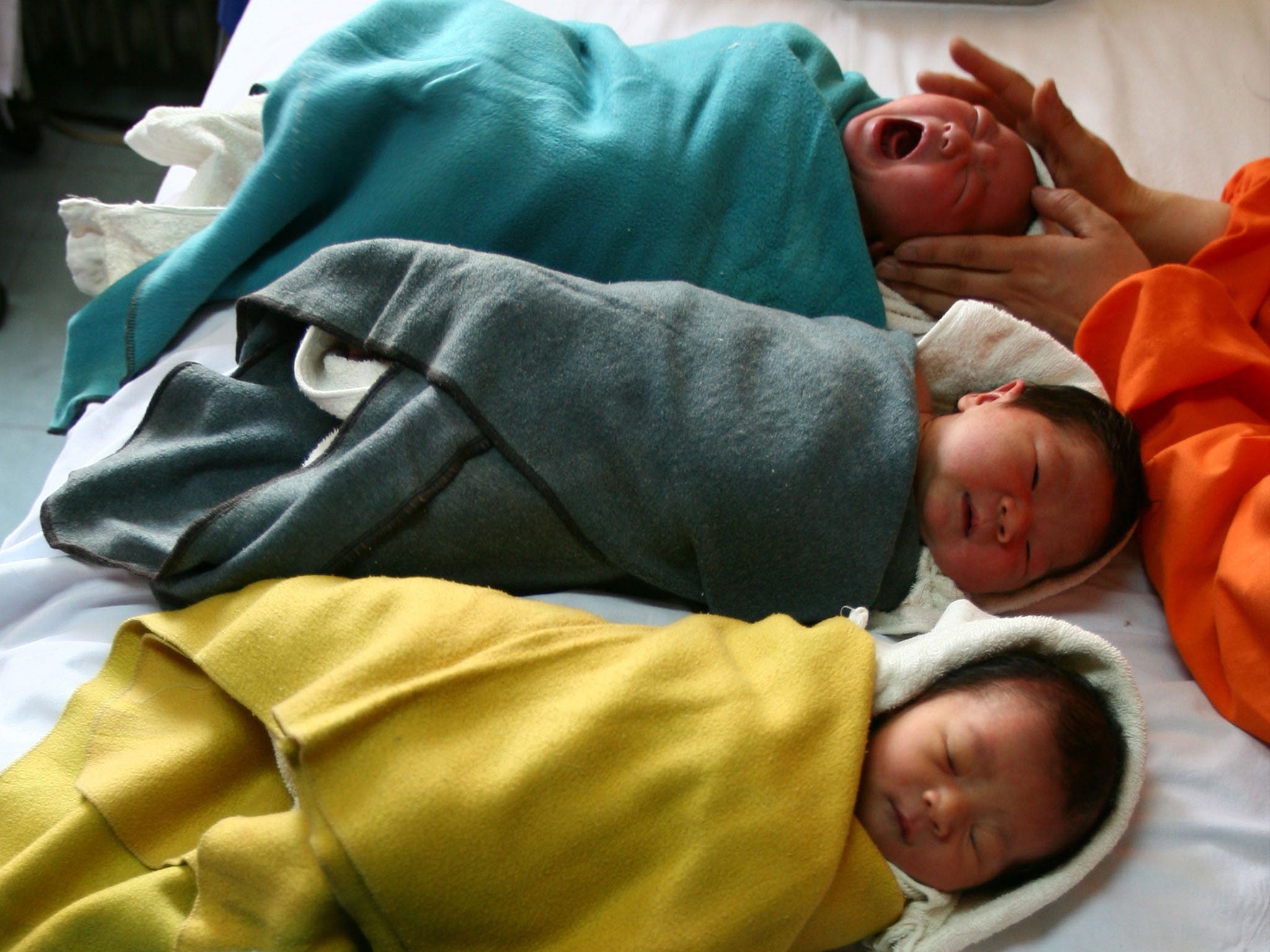China 'to scrap child limits altogether' in effort to boost its ageing population
'People are not having children in China because they cannot afford them. That’s not going to change whether you have a one-child policy, a two-child policy or a 200-child policy'

China is planning to abandon all policies restricting the number of children people can have, according to a report, in a move that would draw to a close one of the world’s longest, most ambitious and most controversial social experiments.
The one-child policy was introduced in 1979 before it was relaxed to two children in 2016, and the Chinese government claims it prevented 400 million births.
Critics dispute that figure, saying China’s birth rate was already falling anyway in line with other developing countries, and that all the policy did was encourage alarming rates of female infanticide and other abuses.
Bloomberg News quoted government sources as saying the new policy would be dubbed “independent fertility”, and that the change could come as soon as this year, or by 2019 at the latest.
And while there was no official confirmation or indeed comment from China’s National Health Commission, the report came on the same day as an article by the state-run Xinhua news agency which eulogised “how much China has changed over the past 40 years” since the one-child policy was introduced.
The article quotes a 63-year-old man as saying he gladly volunteered to have only one child at a time when the policy was needed “to cope with increasing population pressure”. Average salaries have grown, Xinhua says, and the food shortages of the 1970s and 1980s are a matter for “history”.
If China’s state media are preparing the ground for an announcement, they may have to move fast – an initial feasibility study suggesting there would be some “limited” economic gains from lifting child limits was presented to Chinese prime minister Li Keqiang in April, according to Bloomberg.
China owes much of its recent economic boom to a demographic bonus, with a young population providing cheap labour, but that balance has now shifted. The State Council has said around a quarter of China’s population will be 60 or older by 2030, up from 13.3 per cent in 2010, and an ageing society is putting a burden on pensions and services.
Coming so soon after the shift to a two-child limit, any change will inevitably be seen as a climbdown, an admission that relaxing the rules has not boosted birth rates in the way the government hoped, says Professor Steve Tsang, director of the China Institute at the School of Oriental and African Studies (SOAS) in London.
He told The Independent he didn’t think the new policy would have much impact either. “People are not having children in China because they cannot afford them. That’s not going to change whether you have a one-child policy, a two-child policy or a 200-child policy.”
So what will be the legacy of the one-child rule? Most statisticians argue that China’s birth rate was already falling dramatically when it was introduced, making it difficult to assess just how big an impact it had.
Prof Tsang points to the so-called Greater China territories of Hong Kong and Taiwan, where the policy was never implemented, but where fertility rates are among some of the lowest in the world.
One impact that can be measured is on child mortality. A UN report in 2011 found that in the 1970s 60 boys per 1,000 were dying before the age of one, compared with 53 girls. By the 2000s, the ratio had flipped – 21 boys to 28 girls.
“Where the one-child policy did have an impact was on the rights of individuals who were poor and couldn’t just pay [the fine for having more children],” said Prof Tsang. Scrapping the policy, he suggests, is “a step in the right direction” to putting that right.
Subscribe to Independent Premium to bookmark this article
Want to bookmark your favourite articles and stories to read or reference later? Start your Independent Premium subscription today.

Join our commenting forum
Join thought-provoking conversations, follow other Independent readers and see their replies